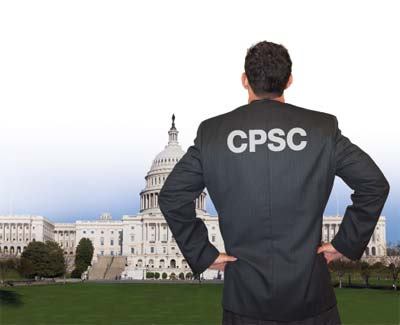Officials at the Consumer Product Safety Commission have responded to accusations from Congress that their interpretation of the Virginia Graeme Baker Act is dangerous for children.
In June, five U.S. Senators and four House members wrote to CPSC, objecting to its handling of VGB.
The largest issue is CPSC’s decision to define an unblockable drain as one with a specified cover, regardless of sump size. Once a drain is considered unblockable, the pool is no longer required to have a backup device, such as a safety vacuum release system.
Another objection from the legislators lies with CPSC’s ruling that SVRS’s and other backup devices can be optional on residential pools. They also disagreed with the decision to exclude small bed-and-breakfast-type establishments from VGB requirements.
The legislators’ letters followed a petition campaign spurred by the Pool Safety Council, an advocacy group composed primarily of safety equipment manufacturers.
These decisions from the CPSC are made via ballot by a group of five commissioners. Of the five, three voted for the current definition of an unblockable drain. The letter writers and petitioners were hoping to change the mind of at least one official.
So far, it is known that two commissioners have responded to the letters from Congress members, but in different ways.
Commissioner Anne Northup voted for the new unblockable drain definition and is standing by her decision.
“I believe unblockable drain covers are a significantly safer form of protection from all five kinds of entrapment than any of the backup systems that private companies were hoping to sell,” she stated in a response.
Some worry about unblockable-sized covers coming off and exposing smaller sumps. But Northup told Pool & Spa News she believes a pool with a single, unblockable drain poses no more danger than one with a “blockable” drain and backup device.
This is because backup devices have not been found to prevent all types of entrapment, she said, adding, “If the grate comes off, they’re all equally unsafe.”
In addition, Northup believes that the current definition will encourage more operators to bring their pools into compliance. This is because it’s less expensive to convert single drains into unblockable ones than it is to add a backup device, she said.
Northup also had sharp words for PSC.
“The people who are objecting [to CPSC guidelines] are the Pool Safety Council because that means they’re not going to sell their backup systems,” she said. “If you’re really interested in safety, you would be promoting enclosures, alarms, more swim lessons [and other drowning-prevention measures].”
PSC declined to comment for this story.
In the long run, Northup believes the unblockable drain definition will stand. As a former member of Congress herself, she said she’s seen petition and letter campaigns with much more support.
“Generally, those kinds of things have an initial effect, but I think as people learn more, it won’t,” she said.
The other commissioner to respond was Robert Adler, who also had backed the unblockable definition. Some letters and petitions were directed at him, asking that he change his vote.
In response, Adler met with the Pool Safety Council and the Association of Pool & Spa Professionals to hear the arguments surrounding the unblockable definition.
APSP officials said they were pleased with their meeting. “We gave [Adler] a presentation regarding the ASME/ANSI [drain cover] standard and the tremendous strides it had made,” said APSP counsel Steven Getzoff. While Adler can’t change the outcome alone by taking back his vote, the group as a whole can revisit such issues. In late July, for instance, CPSC had scheduled a vote to decide whether to retain or change the exemption of bed-and-breakfast-type facilities from the law. The vote had not occurred at press time.




